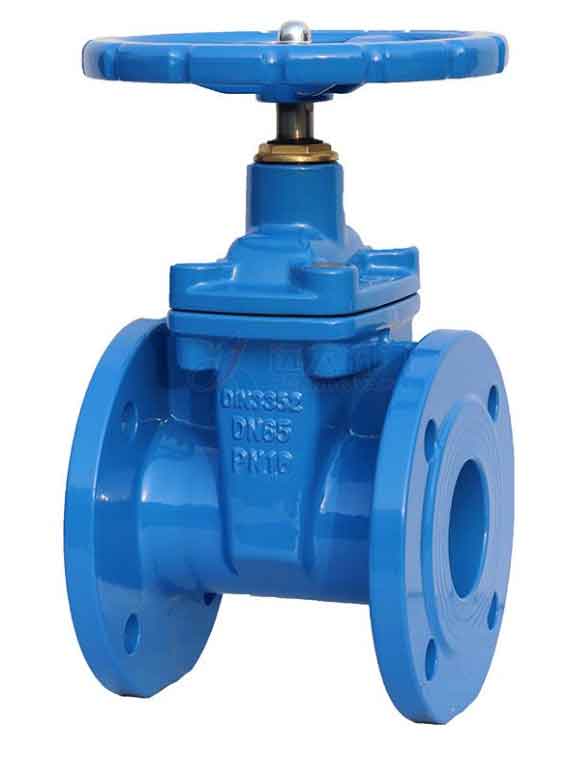Selecting the appropriate material for gate valves is crucial to ensure optimal performance, longevity, and compatibility with the application’s requirements. The choice of material depends on factors such as the type of fluid, pressure, temperature, corrosiveness, and the operating environment. Here are some commonly used materials for gate valves and their characteristics:

1. Cast Iron: Cast iron gate valves are widely used in applications where cost-effectiveness and moderate pressure ratings are required. They are suitable for handling non-corrosive fluids such as water, oil, and gases. Cast iron gate valves are not recommended for corrosive environments or applications with high temperatures.
2. Carbon Steel: Carbon steel gate valves offer good strength, durability, and moderate corrosion resistance. They are suitable for a wide range of applications, including oil and gas, petrochemical, and power generation industries. Carbon steel gate valves can handle high pressures and temperatures, making them suitable for demanding operating conditions.
3. Stainless Steel: Stainless steel gate valves are highly resistant to corrosion and offer excellent durability and strength. They are commonly used in industries such as chemical processing, food and beverage, pharmaceuticals, and water treatment. Stainless steel gate valves are suitable for handling corrosive fluids, high temperatures, and sanitary applications.
4. Bronze: Bronze gate valves are known for their excellent corrosion resistance and are often used in applications involving seawater, marine environments, and low-pressure steam systems. They are suitable for applications in the shipbuilding industry, HVAC systems, and plumbing installations.
5. Brass: Brass gate valves are commonly used in residential and light commercial applications. They are cost-effective, offer good corrosion resistance, and are suitable for handling non-corrosive fluids at low to moderate pressures.
6. Ductile Iron: Ductile iron gate valves are known for their strength and durability. They are suitable for applications that require higher pressure ratings than what cast iron can handle. Ductile iron gate valves are commonly used in water and wastewater treatment plants, mining operations, and industrial applications.
7. Alloy Steels: Alloy steels such as chrome-molybdenum (Cr-Mo) or nickel alloys are used for gate valves in applications involving high temperatures, high pressures, and corrosive environments. These materials offer excellent strength, corrosion resistance, and resistance to oxidation and erosion.
8. Other Exotic Materials: Depending on specific requirements, gate valves can be manufactured with other exotic materials such as titanium, Hastelloy, Inconel, or Duplex stainless steel. These materials offer exceptional corrosion resistance and are used in highly demanding applications involving aggressive chemicals, extreme temperatures, or specialized industrial processes.
It’s important to consult with valve manufacturers or industry experts to select the appropriate material for gate valves based on the specific application requirements. They can provide guidance on material compatibility, performance characteristics, and any industry or regulatory standards that need to be met.
